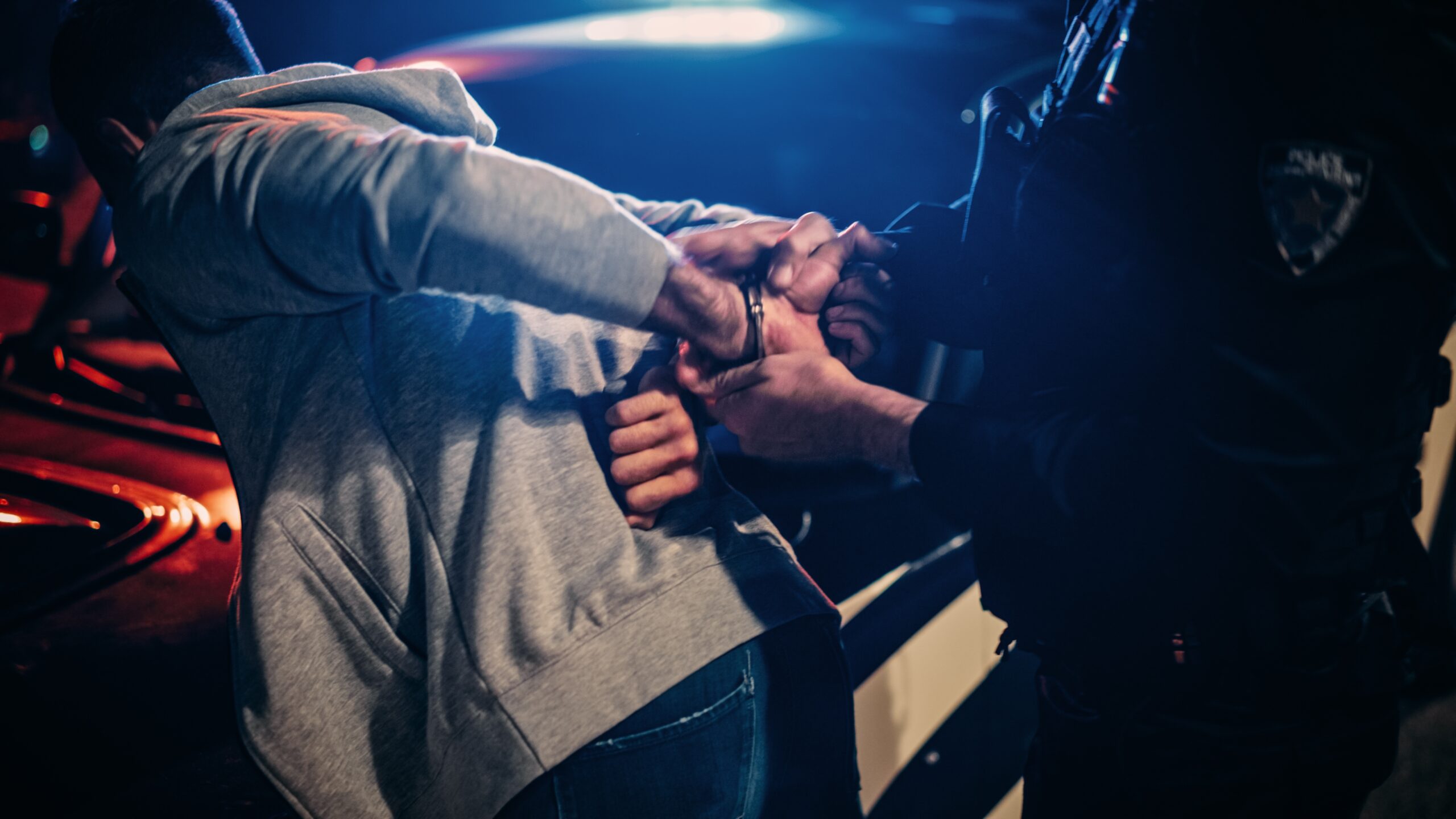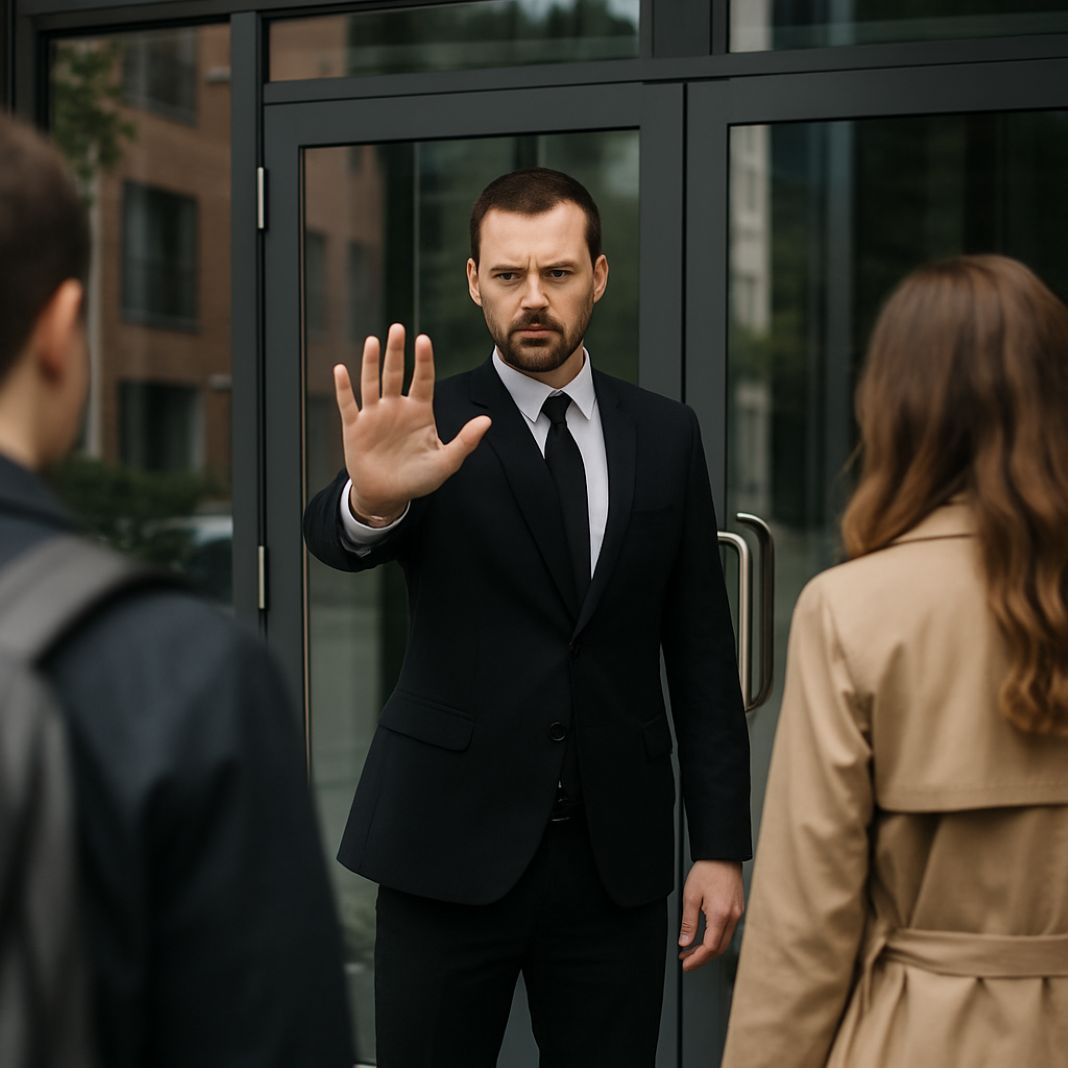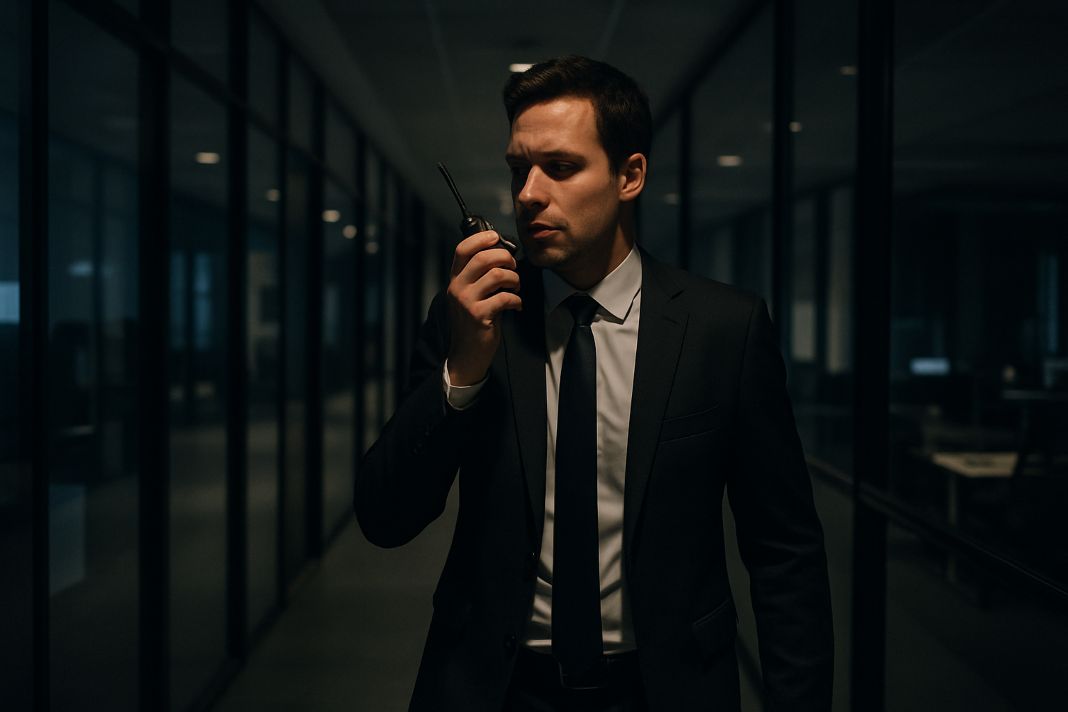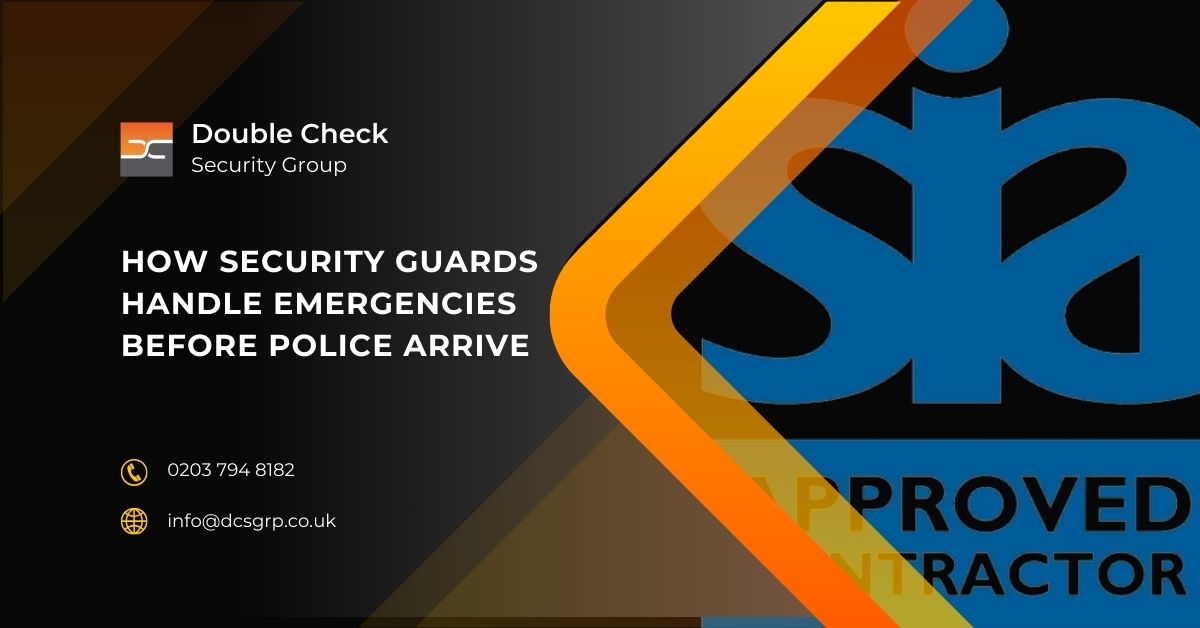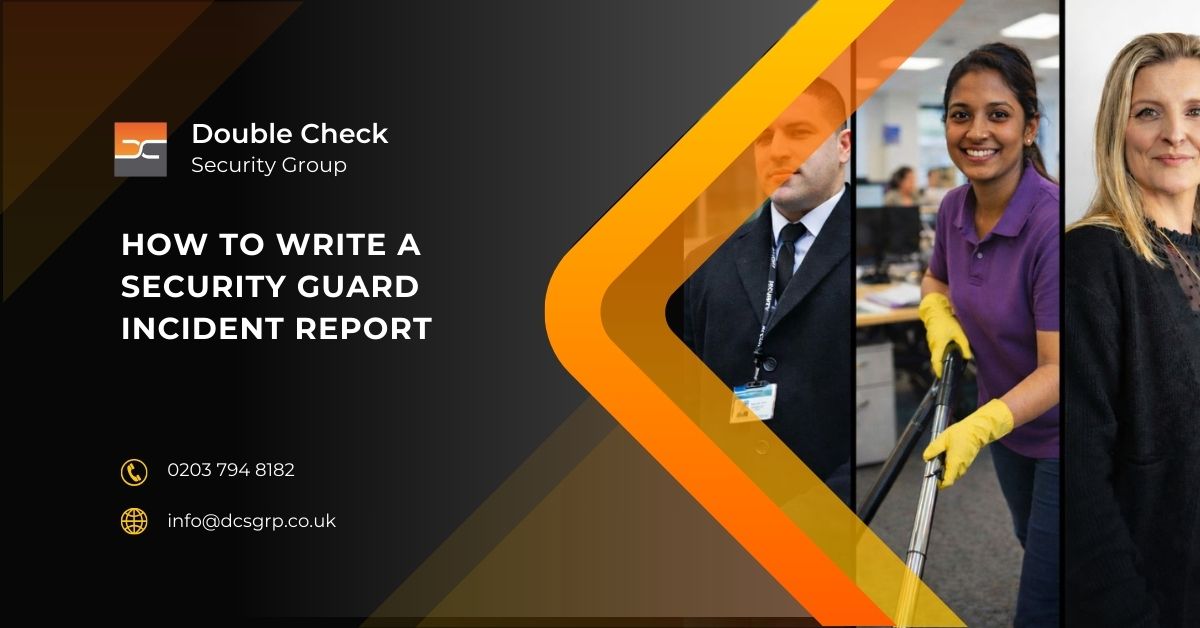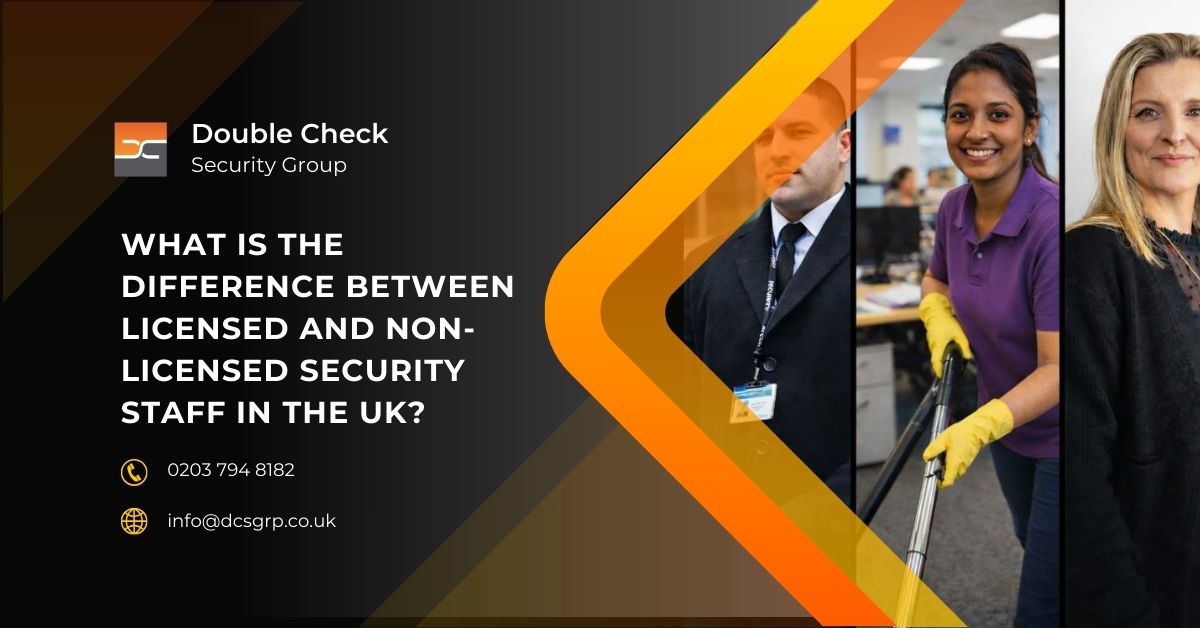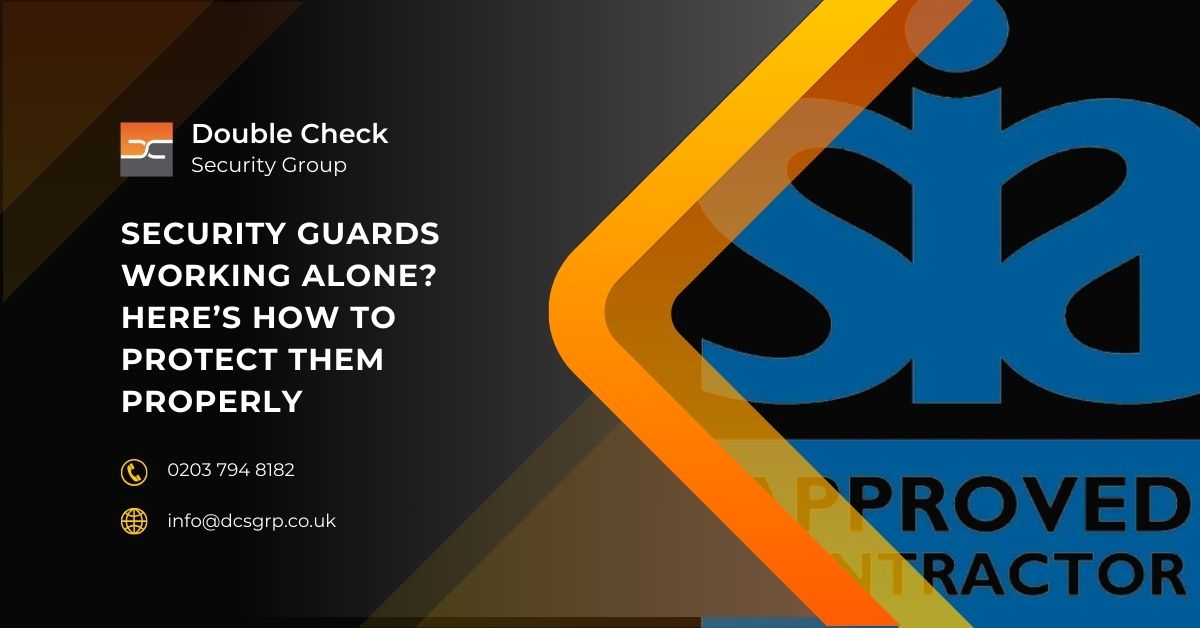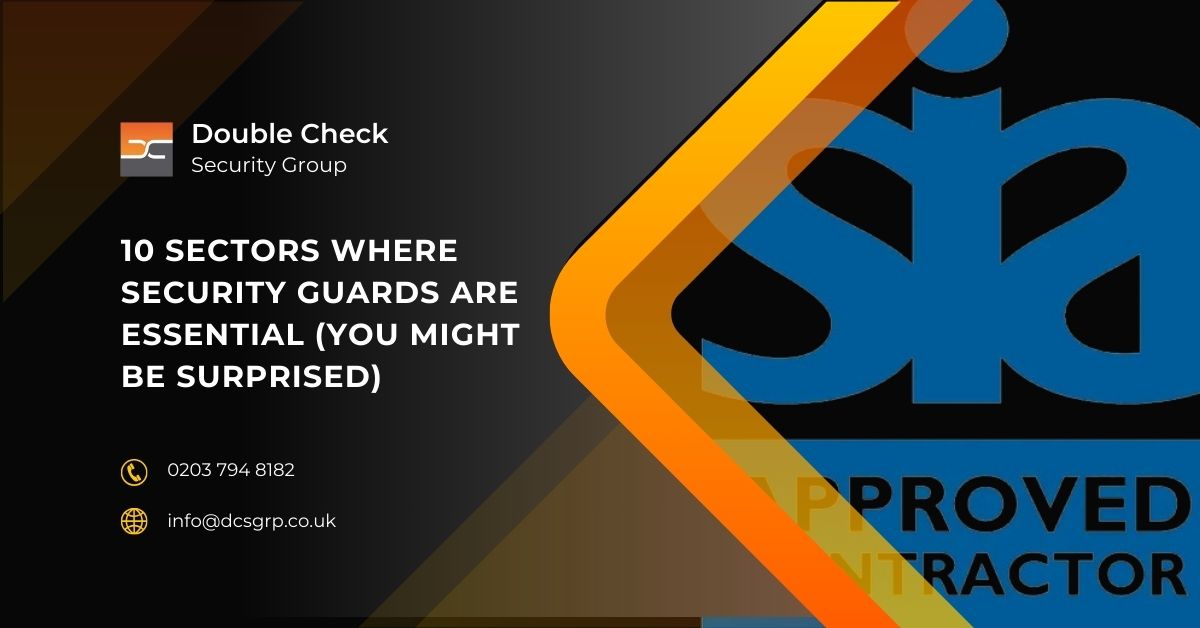How do security guards respond before the police get there?
Security guards are usually first on the scene when an emergency happens on a commercial site. They are responsible for protecting people, keeping the situation stable, and helping emergency services as they arrive. From setting up a safety area to passing on live updates, their early actions can make a big difference.
1. Containing the threat without confrontation
A trained security guard knows how to isolate a threat without making the situation worse. Rather than using force, they manage the area using clear instructions and by limiting access. In a shop, this might mean calmly asking people to move away and blocking entry to certain parts of the store. The aim is to keep everyone safe and hold the situation steady until the police arrive.
2. Protecting people and property
Guards focus on keeping staff, visitors, and buildings safe. This could involve guiding people to a safe space, starting a lockdown, or making sure exit routes stay clear. These actions follow written site procedures and emergency instructions the guard is trained to follow. Professional static guarding plays a central role in minimising harm and controlling risk.
Pro Tip : A calm security guard can prevent panic before it starts, that’s why communication training matters.
Book Emergency-Ready Security Now
Need guards who know exactly what to do before police arrive? Book SIA licensed professionals today.
3. Activating site emergency protocols
Depending on what has happened, the guard may need to:
Evacuate a building
-
Lock certain areas
-
Contact the control room or site manager
-
Use agreed radio call codes
Each step follows the emergency response plan and is usually done while in contact with a control centre. These actions fall under the wider scope of emergency security guard action.
4. Gathering information for emergency services
Guards collect useful details that help police and fire services when they arrive. This includes:
-
Descriptions of people involved
-
Timeline of events
-
Any changes to the situation (for example, someone leaving the scene)
-
Noting CCTV times for later
This kind of reporting supports a faster and more effective response. Security personnel trained in incident control procedures know how to preserve evidence and share accurate updates.
5. Managing the crowd and staying calm
In an emergency, calm communication matters. Guards lead by example, using a steady voice and clear instructions to keep people focused. Their behaviour influences how others respond, especially during fire alarms or incidents involving aggression. This is an important part of scene control and site safety.
6. What emergencies are security guards trained to handle?
Security guard services in London city offices often require additional lone worker support due to building layouts and extended hours.
-
Medical issues (such as collapse or seizures)
-
Theft or vandalism
-
Fire alarms and gas leaks
-
Threats from angry individuals or crowds
-
Suspicious objects or people
Their training follows British Standards BS 7499 and Health and Safety Executive guidance. In busy or higher risk places, the guard is often the only responder until help arrives. Emergencies security guards respond to may differ depending on the site, but core readiness remains key.
Pro Tip : Ask for real incident logs during provider selection to assess response quality.
Protect Your Site With Confidence
Our static security services handle incidents from the first second. Learn what our guards can do for you.
7. Legal responsibilities of security guards in the UK
Understanding reasonable force: In commercial settings, reasonable force means doing only what is necessary to remove a threat or prevent harm. For example, guiding someone physically out of a building if they refuse to leave may be acceptable. However, using force to restrain or hold someone should only happen if there is an immediate risk to safety and no safer option.
-
Hold someone until police arrive (if it is safe)
-
Use force in proportion to the threat
-
Ask someone to leave or stop them from entering
They cannot:
-
Search someone without permission (unless allowed by rules on that site)
-
Carry weapons
-
Pretend to be a police officer
Guards trained under the SIA Licensing Act understand where the legal line is and how to stay within it. This helps protect both the public and the business.
8. How do security guards make fast decisions under pressure?
Security teams often use a model called ASCONE:
-
Approach
-
See
-
Confirm
-
Observe
-
Notify
-
Escort
It guides them to respond quickly while making well judged choices. For example, if someone is acting aggressively, the guard may choose to watch and report rather than try to stop them directly. These structured approaches support risk assessment and prioritise staff and visitor safety.
9. What happens on site while waiting for police?
After making the area safe, the guard may take the following steps:
-
Control who goes in and out
-
Move people away from the scene
-
Start an incident report
-
Take witness names and comments
-
Protect evidence on the ground
Following site lockdown steps helps ensure everything is ready for when police or fire services arrive. These static guard emergency steps help avoid delays and maintain the chain of evidence.
10. Who do guards report to first in an emergency?
What a guard might say to the control room:
-
“Control, this is Unit 2, we have an intruder at the rear fire exit, no injuries. Lock down that section and alert site supervisor.”
-
“This is Main Lobby Guard, aggressive behaviour near reception, verbal only, requesting backup and notify police if needed.”
These communication patterns are part of standard emergency call flow site procedures and help ensure consistency across teams.
-
The control room
-
The site manager or supervisor
-
Emergency services if told to or if clearly needed
This system helps reduce false alarms and ensures a joined-up response. Calls and updates follow a clear plan using radio and phone systems. Guard communication SOPs ensure consistency across shifts and sites.
11. How do guards support police after arrival?
Private security incident response is built around clear communication, evidence preservation, and quick handover. These steps reduce delays and help emergency services act faster.
-
Handing over their written report
-
Pointing out key witnesses or suspects
-
Sharing CCTV times or showing footage
-
Keeping the area calm and clear
The guard’s role is to support, not take over. Their quick handover helps officers get to work faster. Preserving incident scene integrity is a priority.
12. What should clients expect from trained security staff?
Most static guards hold SIA Door Supervisor or Security Guard licences depending on the type of site. A trained static guard UK clients rely on will have both the legal authority and practical readiness to manage an emergency confidently.
-
A steady, confident presence in emergencies
-
Good contact with control rooms
-
Clear use of verbal techniques to lower conflict
-
A focus on scene safety and evidence handling
Well trained guards can often manage a site for more than thirty minutes without extra help. Emergency ready security teams give clients peace of mind and operational reliability.
13. Choosing the right security provider for emergency response
The best security providers will have clear security company emergency procedures that their teams follow consistently across locations.
Ask yourself: Has your current provider ever reviewed real incident outcomes with you? Can they show how their guards responded, how logs were handled, and how the scene was controlled before police arrived? If not, it may be time to reassess.
-
What emergency training do your guards get?
-
Are they first aid trained and SIA certified?
-
How do you manage delays from emergency services?
-
Can you share examples of how guards handled real incidents?
-
What systems are in place for lone workers or aggressive visitors?
A dependable provider will give clear answers, show formal procedures, and offer proof of how their team handles real incidents. Choosing the right emergency security guard services improves safety outcomes and builds trust.
14. Frequently asked questions about emergencies and security guards
Can guards hold someone until police arrive? Yes, if it is safe and proportionate, guards can detain under citizen’s arrest rules.
What if the guard is alone on site? They follow lone worker rules and stay in touch with control. Their safety comes first.
Can guards appear in court? Yes. Their written reports, recorded logs, and CCTV details are often used in court as part of the legal process.
How long do guards stay with a scene? As long as needed. Often thirty minutes or longer, depending on the situation.
Can guards give first aid? Yes, if trained. Many guards have first aid qualifications and carry basic kits.

